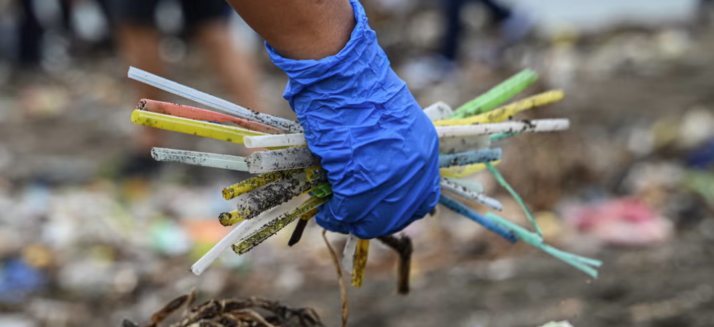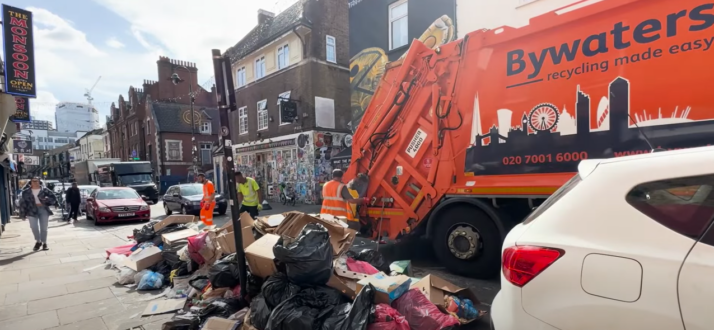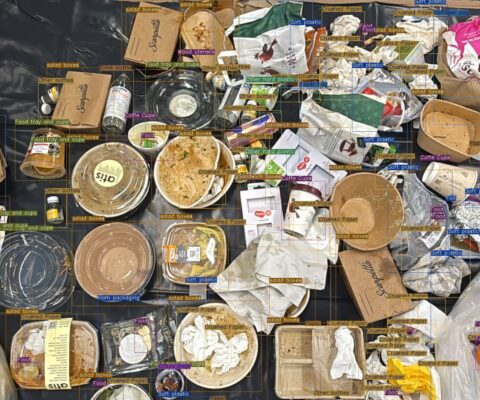Contact us today for your Free Quote
Global News
Recently President Donald Trump announced plans to reverse the previous administration’s initiative to phase out single-use plastics in federal operations. This move aims to eliminate the push for paper straws, which Trump criticised as ineffective, declaring, “BACK TO PLASTIC!”. This decision aligns with his broader environmental policies, which have included withdrawing from the Paris climate agreement and promoting deregulation to encourage fossil fuel production. Unfortunately he is not alone in reducing sustainability commitments and is part of a growing theme across the world.
Over the past decade, many corporations and governments embraced ambitious sustainability goals, pledging to reduce plastic waste, lower carbon emissions, and invest in renewable energy. At the time, there was a sense of urgency and optimism that rapid action could help combat climate change and environmental degradation.
However, in recent years, a noticeable shift has occurred. Many of the same companies and policymakers that once championed aggressive sustainability goals are now scaling back their commitments. This shift reflects a broader societal pattern: ambitious change often faces resistance when the realities of implementation set in.

Many early sustainability targets were overly ambitious, often set without a clear understanding of the practical and financial challenges involved. Businesses and governments made sweeping promises without fully accounting for the technological, logistical, and economic hurdles. As deadlines approached, it became clear that many of these goals were unattainable, leading organisations to revise their targets to more achievable levels.
Also, as global uncertainty increases with economic instability, geopolitical tensions, and climate-related disasters on the rise, there is a tendency to revert to familiar practices. When faced with uncertainty, people and institutions often cling to what they know rather than embracing change. This psychological effect is evident in recent policy reversals.
While sustainability remains an important issue, the enthusiasm of the past decade is giving way to a more cautious, pragmatic approach; one that prioritises feasibility over bold ambition.
UK News
“What do you think would happen if your household bins didn’t get collected for a few weeks? Rats, bad smells and increased health risks?”
As the BBC has reported on, unfortunately, residents in Birmingham have experienced just that as more than 350 bin workers have been striking on and off since the end of last year over working conditions and pay. As an agreement has not been reached with Birmingham City Council, the walkouts have escalated into an indefinite all-out strike since March 11th. According to Unite, the union of which the striking bin workers are a part of, say the strikes are taking place because the council decided to downgrade 170 roles, whereby the workers faced losing £8,000 in annual salary and plan to remove certain roles which are dedicated to checking that Health & Safety requirements are followed for these often dangerous jobs. The council has hit back saying the number of workers affected and salary decrease are not nearly as much as the union says, and that they’ve presented them a fair offer. These strikes could co on for months, if an agreement is not met.

There are obvious negative consequences to this situation as some people’s bins have not been collected for months. Pest control specialists have reported a 75% increase in calls since the strikes started. Residents living in special conditions, such as in care homes are at higher health and safety risk because of build-up of waste onsite, as the overflowing bins create risk of fire, and a possible rat infestation would cause unhealthy living conditions. Everyone is calling for both sides, council and union, to figure something out soon, so the streets can be rubbish free once more.
A very similar situation happened in Tower Hamlets in 2023.
Click HERE to see how Bywaters came in to save the streets of Tower Hamlets
Bywaters News
Here at Bywaters we started carrying out digital waste audits. By carrying out an audit you are able to understand exactly what is being thrown away within the building and set measurable targets and goals. Regular audits can help track the success of initiatives and also educated occupants on waste management best practice. If you want to learn more about how our digital audits and introduce them to your building please contact us.

More posts:
Sustainability News Q1 2025
From global shifts in sustainability policies to local waste management crises and innovative digital audits, explore the complex challenges and solutions shaping our environment today. Discover how economic pressures, labor disputes, and technological advancements are impacting sustainability and waste management practices worldwide.
Read moreOld BRAD vs New BRAD: Smarter Insights, Better Decisions, Greater Impact
We are proud to introduce new and improved BRAD – our upgraded Reporting Analytics Dashboard built with the customers’ feedback at its core. Smarter, faster, and easier to use, the new BRAD offers smarter insights, better decisions, greater impact. Discover the all-new BRAD – make a step toward your sustainable goals!
Read moreGlobal Recycling Day 2025: Why Recycling is More Important Than Ever
On 18th March, we celebrate Global Recycling Day, highlighting the importance of reducing waste, conserving resources, and cutting carbon emissions. With over 2 billion tonnes of waste generated annually, recycling is more crucial than ever. Discover how Bywaters is leading the way in sustainability and how you can make a difference.
Read more




